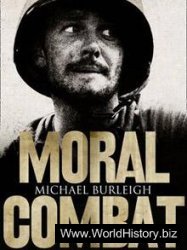All three regimes used organized hatred as a political weapon, directing it at selected groups of victims defamed as enemies of the state. The three regimes elevated the scapegoat principle into a central policy. They developed the notion that there was in the midst of society a corrupting force that had to be eradicated, a notion used as a justification for terror in all three regimes. In Hitler's Germany, it was the race enemy - the Jews. In Stalin's USSR, it was class enemies - the Kulaks. In Mao's China, it was class traitors - the rightists and revisionists (see page 124). From their earliest involvement in revolutionary politics, the three men had embraced terror as an essential mode of action.
Source a
An excerpt from ‘The National Revolution and the Peasant Movement’ by Mao Zedong, 1 September 1926, quoted in Mao’s Road to Power 19121949, Revolutionary Writings, edited by Stuart Schram, published by M. E. Sharpe, USA, 1997, vol. 2, p. 435.
All excessive actions have revolutionary significance. It is necessary to bring about a reign of terror in every rural area; otherwise we could never suppress the activities of the counterrevolutionaries in the countryside or overthrow the authority of the gentry. To right a wrong it is necessary to exceed the proper limits; the wrong cannot be righted without doing so.
SOURCE B
Excerpt from notes made by General Fritz Halder detailing Hitler’s instructions to his generals on 22 August 1939, quoted in Hitler by Michael Lynch, published by Routledge, UK, 2013, p. 199.
Close your hearts to pity. Act brutally. The stronger has the greater right Polish active force is to be destroyed again immediately Continuous demolition to the point of complete annihilation.
According to Source C, what aspects of Stalin’s character led him towards the use of terror?
Why were all three leaders prepared to resort to terror?
An excerpt from Stalin: A Biography by Robert Service, published by Macmillan, uK, 2004, p. 344.
[Stalin's] capacity to turn on friends and subordinates and subject them to torture, forced labour and execution manifested a deeply disordered personality. He had a Georgian sense of honour and revenge. Notions of getting even with adversaries never left him. He had a Bolshevik viewpoint on Revolution. Violence, dictatorship and terror were methods he and fellow party veterans took to be normal. The physical extermination of enemies was entirely acceptable to them.




 World History
World History









